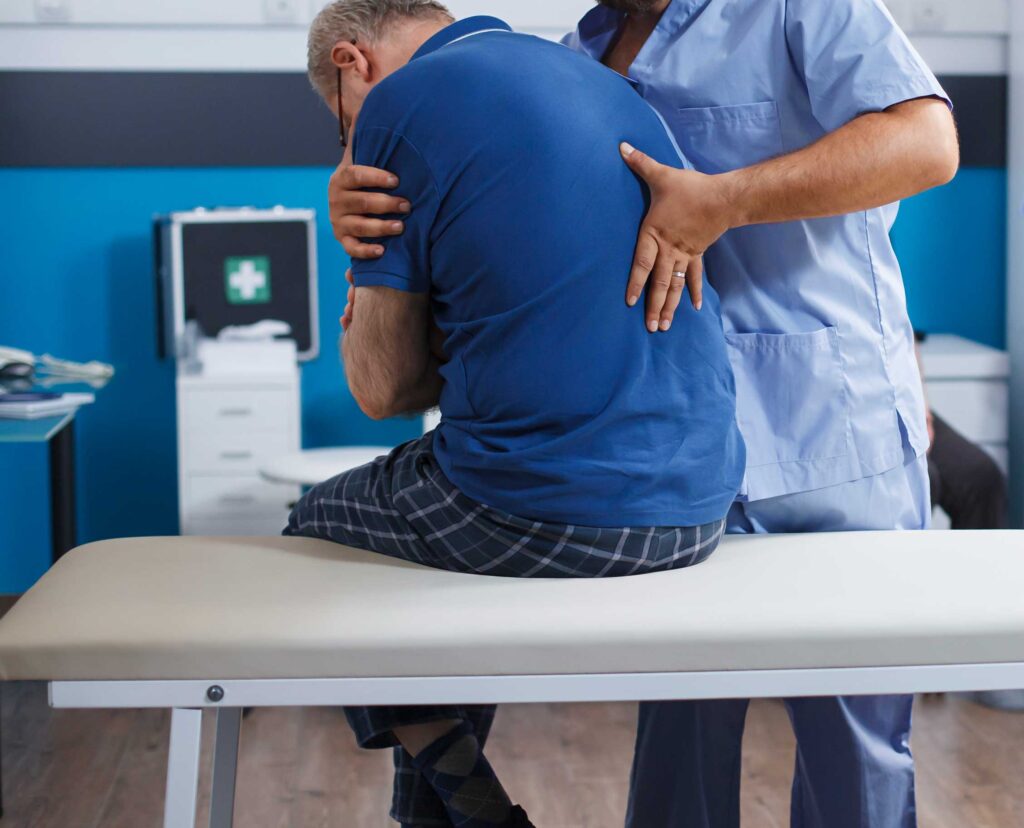Preparing for spine surgery can feel overwhelming but knowing each step helps you feel more in control. Many patients find spine procedures change their lives as they relieve chronic pain and neurological symptoms. With modern techniques and a caring team most people see large improvement. This article outlines what happens before during and after spine surgery based on expert guidance.
Preparing for Spine Surgery
Your doctor will work with you to make sure you are in good shape before surgery. You may get a plan that helps you get ready and reduce risks. Stop smoking weeks before surgery. That lowers risks and helps healing. Aim for a healthy weight and start gentle exercise or physical therapy to build core strength. You should manage medical issues like diabetes or anemia. You should also get good nutrition with vitamin D and calcium for bone health. Follow all pre‑surgery instructions from your surgeon. You may need to stop some medicines like blood thinners or anti‑inflammatory drugs. You may need to skip alcohol in the weeks before surgery.
Pre‑operative Visit Days or Weeks Before Surgery
You will meet a nurse navigator and the anesthesiologist. The team will review your history and ask questions. They will check your records and medicines. They may do tests like blood work or an ECG. They will tell you what to do the night before surgery. You may need to shower with an antibacterial soap the night before and the morning of surgery to reduce skin germs. They will tell you when to stop eating and drinking. You may need to stop eating solid food after midnight and only drink clear liquids until a few hours before you arrive.
Plan your Home and Support System Ahead
Set up your bedroom and key items on one floor to avoid stairs while healing. Remove loose rugs, clear walkways, and fit handrails to prevent falls. Stock your kitchen with simple, healthy meals you can freeze. Get someone to help with childcare, pets, or errands after surgery. Clear trip hazards and put night‑lights in bathrooms and halls. Have a chair with firm arms ready for resting. These changes help you heal in a safe and calm setting.
Pack a Hospital Bag with Essentials
Bring loose, comfy clothes like a button‑front shirt and sweat pants for after surgery. Leave jewelry, makeup, and nail polish at home. The team will ask you to remove glasses, contact lenses, and dentures before surgery. Bring your hearing aids or CPAP machine if you use them. Most of all, bring a written list of all your medicines, including vitamins and over‑the‑counter drugs. That helps the hospital check them. Do not take any medicine or cannabis products unless your doctor tells you to.
Night Before Surgery
You should have washed with the special soap and eaten only a light dinner or nothing at all as instructed. Get plenty of rest. If you get a cold, fever, or a skin issue near the surgery area, call your surgeon’s office right away. Good communication helps avoid delays or cancellations. This physical and mental preparation keeps you safe and helps your outcome.
Day of Surgery
On the day of surgery, arrive at the hospital at the time you were told. Staff will register you and get you ready. They will confirm who you are and your insurance. You will go to the pre‑op area. There you will change into a gown. Nurses will ask the same questions again to verify your history, allergies, and medicines. They may place an IV line for fluid and medicine. The team may mark the surgery site with the surgeon’s initials while you watch. That ensures the team works on the right area.
You will meet or talk again with the anesthesiologist. They will explain the anesthesia plan. In spine surgery, you usually get general anesthesia. The surgeon will make an incision in your back to relieve pressure on nerves. The surgeon may remove a herniated disc or bone spur or put in screws or rods to stabilize the spine. After the surgery, your muscles and skin will be closed with sutures or staples. Your vitals will be watched the whole time.
After Surgery: Hospital Recovery
After surgery, you will go to the post‑anesthesia care unit or recovery room. Nurses will watch you as you wake from anesthesia. You may have an oxygen mask, a blood pressure cuff, and an IV. In the first 24 to 48 hours, nurses will watch your vital signs and manage your pain. You may feel groggy, sleepy, or even a bit unclear at first. It is normal to feel moderate pain or pressure at the surgery site. Your team will give you pain medicine to keep you comfortable. You may have a small drain at the incision to stop fluid from building up. That is normal, and the staff will remove it before you leave.
Before you go home, your nurse and therapist will go over how to care for your incision how to move safely, and what tasks to avoid. You will get medicine for pain and maybe muscle relaxers or anti‑inflammatories. Make sure you have your follow‑up visit set and that you understand each medicine and dose.

At‑Home Recovery: Weeks 1–2
When you go home your focus shifts to safe wound care pain control and gentle activity. Follow the steps your surgeon gives you. Clean and dry your incision as directed. You may cover it with gauze or use waterproof dressing in the shower. Watch for signs of infection like redness beyond the cut pus drainage more pain or fever. If fever or swelling gets worse call your doctor right away.
Keep pain meds on schedule for the first week or so. It helps to take them before the pain gets bad. Use ice packs to help with swelling and heat for muscle ease if your team says it is ok. Use pillows under your legs while resting and change position often. Avoid long sitting at first. Move in short walks 3 or 4 times a day as you can. That helps blood flow and lowers risk of clots or lung issues.
Keep taking regular medicines like blood pressure or diabetes meds unless told not to. Fill any new scripts quickly. Use stool softeners if you need them because pain medicine can cause constipation.
Warning Signs
Watch your body and call for help when needed. Call your surgeon or go to the ER if you have:
- Fever above 101°F that does not get better with meds
- A sudden, sharp increase in pain that medicine does not help
- New numbness or weakness in arms, legs, or other areas that gets worse
- Incision drainage that is bloody or keeps going
- Shortness of breath or chest pain
These might mean infection spinal fluid leak or other problem. It is better to call your doctor if you are not sure.
Recovery Milestones: Weeks 3–6
In weeks 3 to 4 you should feel your surgical pain drop. You may still have dull ache or stiffness. You should feel more energy and walk farther. Many start gentle physical therapy in weeks 3 to 4 with safe stretch and core and leg work. Follow your plan from your surgeon or therapist.
Keep eating protein with meat, fish, eggs, beans, dairy, fruits, and vegetables. Drink enough water. Do not smoke, as that slows bone healing and raises infection risk. Take walks if the weather and energy let you. Fresh air and movement help blood flow and mood. You may feel numbness, tingling, or “pins and needles” in arms or legs. That may be nerve healing and often gets better with time. Talk about any issues at follow-up visits, but some numbness can be normal as nerves heal.
Long‑Term Recovery (6 Weeks and Beyond)
After 6 weeks many limits ease. Around 2 or 3 months you may return to most tasks. People with desk work may go back in 4 to 6 weeks if they feel ready. Those with physical jobs may wait 3 to 6 months. Driving is usually off‑limits until you are strong and not on heavy pain meds. This is often in 2 to 4 weeks. Always check with your surgeon first.
Keep all follow‑up visits even if you feel good. Your doctor needs to watch your progress. If new symptoms appear like fever worse weakness or drainage call your surgeon right away.

Reassurance and Next Steps
Recovery from spine surgery takes time care and team support. You may have ups and downs. Lean on family friends and your care team. Go to physical therapy and ask questions in follow‑ups.
Trust your care team to guide you. As you follow instructions and grow stronger you should notice more improvement. Many say they get “their life back” as they move more and feel less pain. Knowing what to expect helps you stay informed and positive. Be patient and steady healing takes time but each week you should feel a bit better.
